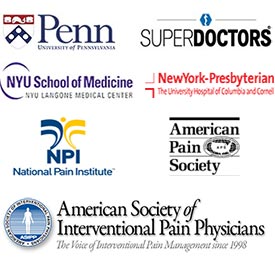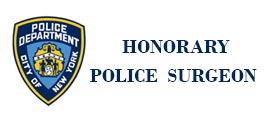Post-Surgery Back Pain Management Doctors NYC
Back pain (including post surgical back pain) is one of the most common reasons patients visit Manhattan Pain and Sports Associates. When you experience post-surgery back pain, that’s the time to seek out an experienced pain management team, such as the doctors at Manhattan Pain and Sports Associates, to ease your discomfort and find solutions that can get you back into your active lifestyle.
Following back surgery, you undoubtedly will develop some scar tissue. Scar tissue typically plays no role in post-surgery back pain. More likely your pain comes from:
- The trauma your body underwent during the procedure
- The techniques used to perform your back surgery
- Your general health prior to the surgery
- Your willingness to strictly follow post-surgical physical therapy regimens (that in and of themselves can be uncomfortable)
Post-Surgery Back Pain
For most spine doctors, pain management experts and patients suffering with back pain, surgery is the last option. But when it’s required, surgery can offer a very promising end your suffering. Don’t take surgery lightly, but don’t hesitate if it’s the last option to relieve your pain.
When Scar Tissue Does Harden
One of the most helpful things you can do to prevent the tightening pain that often follows back surgery is to stretch regularly. Most of your scar tissue develops during six to 12 weeks after the surgery. The stretching you do during that period can keep the nerves mobile to prevent painful adhesions and reduce the likelihood of post-surgery pain.
Even when the nerves get bound up in scar tissue you still have options. Exercises are always included in any post-surgical treatment of ongoing back pain. Those exercises eventually free up the nerves from the binding scar tissue that built up in those first critical weeks of recovery. Medications and pain management techniques also help you get through this period.
When All Else Fails
A condition called “failed back syndrome” may be the cause of your continued pain following back surgery, even after what doctors consider to be a successful surgery. The failure may not necessarily be due to the actual procedure, which may have accomplished its goals, but in the fact that you still have pain. The reasons vary, but could include:
- Epidural fibrosis: When scar tissue forms right on top of the nerve roots
- Arachnoiditis: Inflammation of the sensitive membranes that surround and protect the spinal cord nerves
- Fusion failure: When you place excessive pressure on your back through extreme motion; if you take too many anti-inflammatories; or if there was a poor placement of the rods or screws used in your back surgery
- Technical problems: When the surgery was performed on the wrong level; a nerve was severed; or a piece of a protruding disc was left intact
When you experience post-surgery back pain, that’s the time to seek out an experienced pain management team, such as the doctors at Manhattan Pain and Sports Associates, to ease your discomfort and find solutions that can get you back into your active lifestyle.
For most spine physicians, pain management experts and patients suffering with back pain, surgery is the last option. But when it’s required, surgery can offer a very promising end your suffering. Don’t take surgery lightly, but don’t hesitate if it’s the last option to relieve your pain.
Following back surgery, you undoubtedly will develop some scar tissue. Scar tissue typically plays no role in post-surgery back pain. More likely your pain comes from:
- The trauma your body underwent during the procedure
- The techniques used to perform your back surgery
- Your general health prior to the surgery
- Your willingness to strictly follow post-surgical physical therapy regimens (that in and of themselves can be uncomfortable)
When Scar Tissue Does Harden
One of the most helpful things you can do to prevent the tightening pain that often follows back surgery is to stretch regularly. Most of your scar tissue develops during six to 12 weeks after the surgery. The stretching you do during that period can keep the nerves mobile to prevent painful adhesions and reduce the likelihood of post-surgery pain.
Even when the nerves get bound up in scar tissue you still have options. Exercises are always included in any post-surgical treatment of ongoing back pain. Those exercises eventually free up the nerves from the binding scar tissue that built up in those first critical weeks of recovery. Medications and pain management techniques also help you get through this period.
When All Else Fails
A condition called “failed back syndrome” may be the cause of your continued pain following back surgery, even after what doctors consider to be a successful surgery. The failure may not necessarily be due to the actual procedure, which may have accomplished its goals, but in the fact that you still have pain. The reasons vary, but could include:
- Epidural fibrosis: When scar tissue forms right on top of the nerve roots
- Arachnoiditis: Inflammation of the sensitive membranes that surround and protect the spinal cord nerves
- Fusion failure: When you place excessive pressure on your back through extreme motion; if you take too many anti-inflammatories; or if there was a poor placement of the rods or screws used in your back surgery
- Technical problems: When the surgery was performed on the wrong level; a nerve was severed; or a piece of a protruding disc was left intact
Get the Back Relief You Need
At Manhattan Pain and Sports Associates , you’ll get the post surgical back pain management and doctor care you need to reduce or eliminate your back pain. Because when you’re in pain you want relief. Appropriate and targeted back pain management and treatment starts with a proper diagnosis from your NYC hip pain management doctor.
Your NYC back pain management doctor’s goal is to get you back to your normal routine with minimal downtime. After your diagnosis is confirmed, your doctor begins your post surgical back pain treatment plan with the most conservative pain relief treatment.
Manhattan Pain and Sports Associates
51 East 25th St, 4th Floor, Ste B
New York, NY 10010
(212) 533-3954



